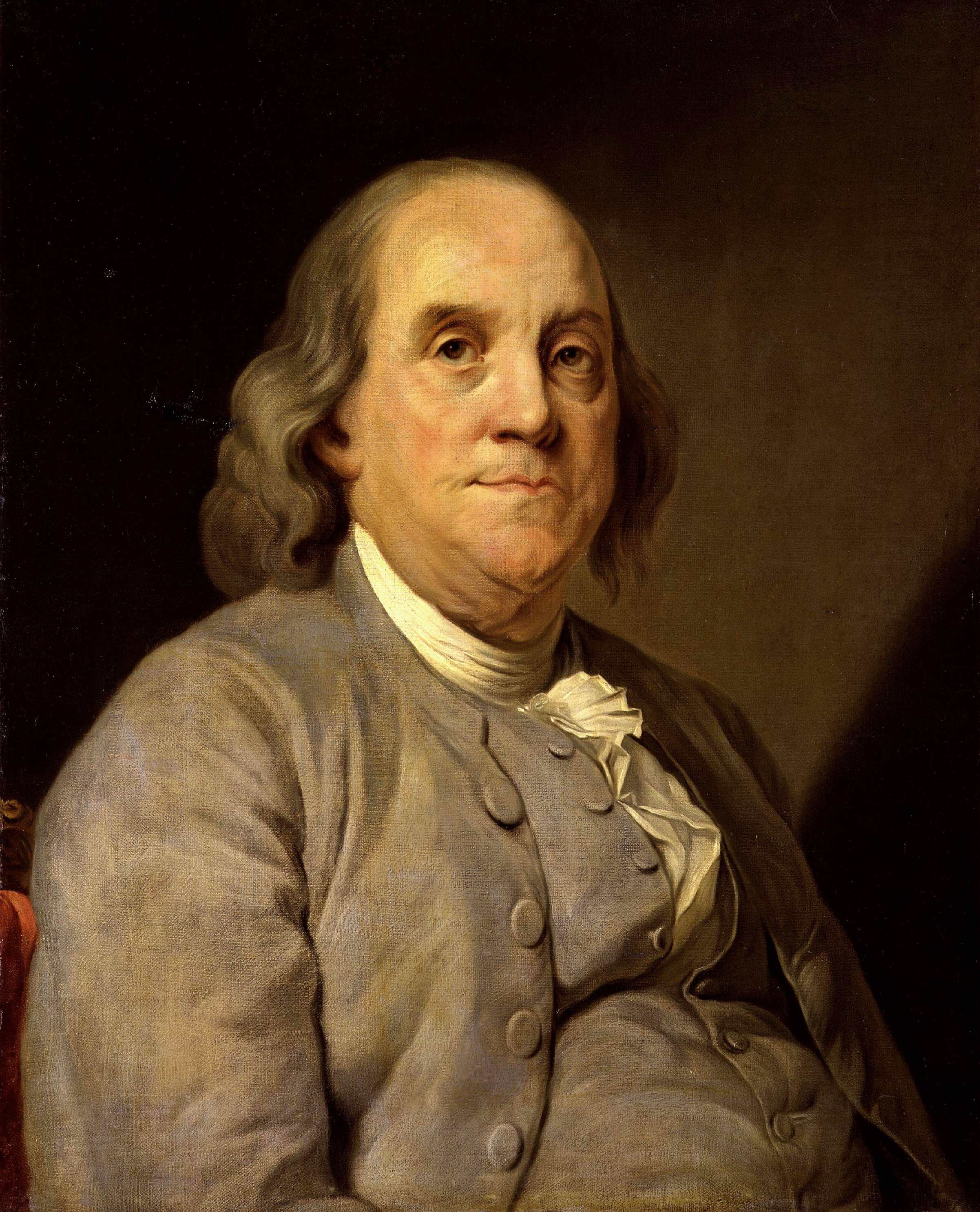泥巴:不成体统,却可方圆。。。
“泥巴”,涵摸爬滚打,有形时刚,无形时水软正在听Autobiography of Benjamin Franklin edited by Frank Woodworth Pine
因为我听的是免费的,估计听到的是简写的版本,在我听的这本书里是第九章,但在网上其他的版本里是第八章
我喜欢反复听我喜欢的,这个反复听了几遍,觉得还是要看字才更好,所以复制到这里:
http://www.earlyamerica.com/lives/franklin/chapt8/
“It was about this time I conceiv'd the bold and arduous project of arriving at moral perfection. I wish'd to live without committing any fault at any time; 。。。。。。 that the contrary habits must be broken, and good ones acquired and established, before we can have any dependence on a steady, uniform rectitude of conduct. For this purpose I therefore contrived the following method。。。。。。These names of virtues, with their precepts, were
1. TEMPERANCE. Eat not to dullness; drink not to elevation.
2. SILENCE. Speak not but what may benefit others or yourself; avoid trifling conversation.
3. ORDER. Let all your things have their places; let each part of your business have its time.
4. RESOLUTION. Resolve to perform what you ought; perform without fail what you resolve.
5. FRUGALITY. Make no expense but to do good to others or yourself; i.e., waste nothing.
6. INDUSTRY. Lose no time; be always employ'd in something useful; cut off all unnecessary actions.
7. SINCERITY. Use no hurtful deceit; think innocently and justly, and, if you speak, speak accordingly.
8. JUSTICE. Wrong none by doing injuries, or omitting the benefits that are your duty.
9. MODERATION. Avoid extreams; forbear resenting injuries so much as you think they deserve.
10. CLEANLINESS. Tolerate no uncleanliness in body, cloaths, or habitation.
11. TRANQUILLITY. Be not disturbed at trifles, or at accidents common or unavoidable.
12. CHASTITY. Rarely use venery but for health or offspring, never to dulness, weakness, or the injury of your own or another's peace or reputation.
13. HUMILITY. Imitate Jesus and Socrates.
Temperance first, as it tends to procure that coolness and clearness of head, which is so necessary where constant vigilance was to be kept up, and guard maintained against the unremitting attraction of ancient habits, and the force of perpetual temptations. This being acquir'd and establish'd, Silence would be more easy; and my desire being to gain knowledge at the same time that I improv'd in virtue, and considering that in conversation it was obtain'd rather by the use of the ears than of the tongue, and therefore wishing to break a habit I was getting into of prattling, punning, and joking, which only made me acceptable to trifling company, I gave Silence the second place. This and the next, Order, I expected would allow me more time for attending to my project and my studies. Resolution, once become habitual, would keep me firm in my endeavors to obtain all the subsequent virtues; Frugality and Industry freeing me from my remaining debt, and producing affluence and independence, would make more easy the practice of Sincerity and Justice, etc., etc. Conceiving then, that, agreeably to the advice of Pythagoras in his Golden Verses, daily examination would be necessary, I contrived the following method for conducting that examination. ”
上边的13个美德是富兰克林20岁时就开始实施的。。。我很佩服他
不过being 泥巴。。。呵呵。。。我总忍不住。。。下边的图片是他多大的时候呢?:)。。。说到1。TEMPERANCE,估计是他衣服穿太多了的缘故,:)。。。所以不能对自己太严厉,尽力就可以了





看你的link,还真是librivox志愿者念的
回复wenjuyuan的评论:
https://catalog.librivox.org/search.php?title=&author=&status=complete&action=Search
说老实话我还是有些下面的美德的,不吹牛,:)
回复wushu的评论:
FRUGALITY 嗯,听书还是要听不要钱的。
SINCERITY
JUSTICE 听书得注意判断啊,听个故事不要太感动,去骂“坏人”什么的,那些虚构的人物没什么罪过。---泥巴:那本书是历史学家写的,基本是史实呢
MODERATION---不极端
TRANQUILITY---Serenity,:)
HUMILITY 在茫茫车海中听着免费的书,都谦卑得和蚂蚁差不多了!
回复silverbug的评论:
我们实际应用一下吧,就拿听书作例子:
TEMPERANCE 听书好啊,不大可能开车听书还能大吃大喝。
SILENCE 这是一定的,一边听书还一边说话就恐怖了。
ORDER 这个吗,书一般还是蛮有次序的,传记小说评书之类的要排好位置。
RESOLUTION 开车听书不用说就是个resolution吧?
FRUGALITY 嗯,听书还是要听不要钱的。
INDUSTRY 显然啦,开车听书大概是这个industry 的最好例子,不虚度一分一秒。
SINCERITY 听书应该是挺虔诚认真的吧,不然听不下去。
JUSTICE 听书得注意判断啊,听个故事不要太感动,去骂“坏人”什么的,那些虚构的人物没什么罪过。
MODERATION 有节制,忍耐。天太热就开个空调,要是空调坏了,听书也可以帮你抗过去。不要去砸空调啊。
CLEANLINESS 干净,看书也能把书看脏了,听书总不能把书听脏了吧?
TRANQUILLITY 绝对的,两耳不闻窗外事么,不过Franlin说还能避免车祸吗?这个要考虑考虑是不是信他的。
CHASTITY 边开车边听书呢,想什么想!
HUMILITY 在茫茫车海中听着免费的书,都谦卑得和蚂蚁差不多了!